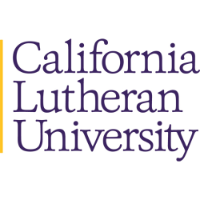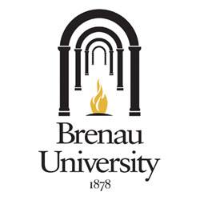What do they do?
Evaluate, authorize, or recommend approval of commercial, real estate, or credit loans. Advise borrowers on financial status and payment methods. Includes mortgage loan officers and agents, collection analysts, loan servicing officers, loan underwriters, and payday loan officers.
Also known as:
Commercial Banker, Commercial Loan Officer, Corporate Banking Officer, Financial Aid Advisor, Financial Aid Counselor, Financial Aid Officer, Financial Counselor, Loan Counselor, Loan Officer, Mortgage Loan Officer
-
0%
Change
Ranks #52 in job growth rate910Job Openings
Ranks #10 in net job growth
-
University of Iowa
Iowa City, IA
-
California Lutheran University
Thousand Oaks, CA
-
University of Southern California
Los Angeles, CA
-
Brenau University
Gainesville, GA
-
Belhaven University
Jackson, MS
Looking for colleges that offer a specific major? Use the College Match Tool to find your best-matched schools and discover your estimated Net Price!
- Doctorate or Professional Degree (1%)
- Master's degree (10%)
- Bachelor's degree (42%)
- Associate's degree (10%)
- Some college, no degree (22%)
- High school diploma equivalent (13%)
- Less than high school diploma (1%)
People in this career often have these skills:
- Active Listening - Giving full attention to what other people are saying, taking time to understand the points being made, asking questions as appropriate, and not interrupting at inappropriate times.
- Speaking - Talking to others to convey information effectively.
- Reading Comprehension - Understanding written sentences and paragraphs in work-related documents.
- Judgment and Decision Making - Considering the relative costs and benefits of potential actions to choose the most appropriate one.
- Critical Thinking - Using logic and reasoning to identify the strengths and weaknesses of alternative solutions, conclusions, or approaches to problems.
- Writing - Communicating effectively in writing as appropriate for the needs of the audience.
People in this career often know a lot about:
- Customer and Personal Service - Knowledge of principles and processes for providing customer and personal services. This includes customer needs assessment, meeting quality standards for services, and evaluation of customer satisfaction.
- Economics and Accounting - Knowledge of economic and accounting principles and practices, the financial markets, banking, and the analysis and reporting of financial data.
- English Language - Knowledge of the structure and content of the English language including the meaning and spelling of words, rules of composition, and grammar.
- Mathematics - Knowledge of arithmetic, algebra, geometry, calculus, statistics, and their applications.
- Sales and Marketing - Knowledge of principles and methods for showing, promoting, and selling products or services. This includes marketing strategy and tactics, product demonstration, sales techniques, and sales control systems.
People in this career often have talent in:
- Oral Comprehension - The ability to listen to and understand information and ideas presented through spoken words and sentences.
- Written Comprehension - The ability to read and understand information and ideas presented in writing.
- Oral Expression - The ability to communicate information and ideas in speaking so others will understand.
- Written Expression - The ability to communicate information and ideas in writing so others will understand.
- Near Vision - The ability to see details at close range (within a few feet of the observer).
- Problem Sensitivity - The ability to tell when something is wrong or is likely to go wrong. It does not involve solving the problem, only recognizing that there is a problem.
- Deductive Reasoning - The ability to apply general rules to specific problems to produce answers that make sense.
- Inductive Reasoning - The ability to combine pieces of information to form general rules or conclusions (includes finding a relationship among seemingly unrelated events).
- Speech Recognition - The ability to identify and understand the speech of another person.
- Speech Clarity - The ability to speak clearly so others can understand you.
People in this career often do these activities:
- Interview clients to gather financial information.
- Assess financial status of clients.
- Authorize financial actions.
- Interpret financial information for others.
- Submit financial applications.
- Verify accuracy of financial information.
- Examine financial records.
- Maintain data in information systems or databases.
- Gather financial records.
- Develop financial plans for clients.
- Correspond with customers to answer questions or resolve complaints.
- Supervise employees.
- Update professional knowledge.
- Market products, services, or events.
- Analyze market conditions or trends.
- Compute debt repayment schedules.
- Prepare financial documents, reports, or budgets.
- Establish organizational guidelines or policies.
This page includes data from:

 Occupation statistics: USDOL U.S. Bureau of Labor Statistics Occupational Employment Statistics
Occupation statistics: USDOL U.S. Bureau of Labor Statistics Occupational Employment Statistics









